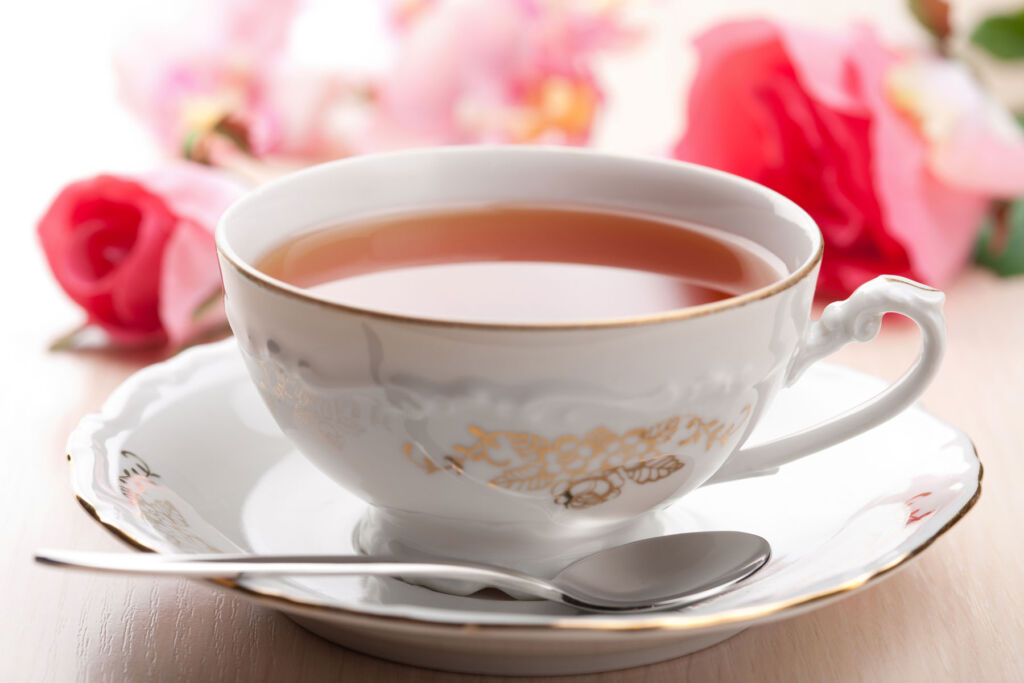
We believe cups of tea should be part and parcel of everyone’s daily lives, not because there’s a tasty variety for everyone, but because of its incredible health benefits. In a new poll reviewed by the Tea Advisory Panel, they found that although 98% of Brits are tea drinkers, their understanding of its health-boosting properties can best be described as ‘patchy’.
How much do Brits know about the wealth of wellbeing wonders in their daily cuppa? Sadly, it’s not much, according to a new survey, which found that 90%[1] were unaware of the health-promoting polyphenols a cup of tea provides.
The new poll of over 1,000 Brits reviewed by the Tea Advisory Panel (TAP) shines a light on Brits’ tea beliefs in relation to tea and health.
“With around a third (32%) of survey respondents including ‘the health benefits’ as one of their top three reasons for drinking tea, results were pretty poor when it came to their knowledge and understanding of the specific details,” says dietitian and expert for TAP, Dr Carrie Ruxton.

Brain and mental health
The well-being benefit correctly picked out by most survey respondents (39%) was tea’s ability to ease stress and anxiety. But that still leaves six in 10 (61%) who didn’t make the connection between their daily brew and mental wellness.
Additionally, four in five (79%) failed to note tea’s potential for alleviating low mood and depression, even though plenty of science backs up these benefits of a brew.
Dr Ruxton explains, “Just to give one scientific study, findings from the Diet and Healthy Aging Study of 614 middle-aged adults found a significant reduction in the chances of having depression and anxiety among long-term tea drinkers.[2]”
Hydration
This tea knowledge gap also applied to Brits’ daily fluid intake. “Seven in 10 (71%) didn’t know that drinking tea could help them boost hydration levels,” says Dr Ruxton, adding, “Yet a randomised controlled trial in the British Journal of Nutrition found that regular ‘black’ tea was just as effective as water for maintaining normal hydration levels. This means that most of the 98% of Brits who drink tea are unaware that their daily brew is supporting their health.” [3]
Cardiovascular and metabolic health
Four in five (80%) survey respondents also failed to make the link between tea drinking and improved cardiovascular health, which, again, flies in the face of the scientific evidence.
On top of the heart health knowledge gap, an even greater proportion didn’t know about the blood sugar-regulating capabilities (86%) of a daily cuppa, which could benefit people with, or on the verge, of type 2 diabetes.
As Dr Ruxton explains, “A review of the evidence in Nutrition Bulletin found that drinking black tea could help lower the risk of type 2 diabetes as well as coronary heart disease.” [4]
She adds, “Additionally, a systematic review of RCTs in the Journal of Nutrition & Food Sciences concluded that drinking tea could help lower blood pressure and inflammation and improve blood vessel function, while green tea had potential cholesterol-lowering effects. These are all great benefits to help prevent conditions like heart disease and diabetes.” [5]
Bone health
Knowledge of tea’s effect on our bones was even worse. Nine in 10 were unaware of tea’s bone health benefits (90%).
Brits were also very hazy about which tea constituents bring these health advantages. For example, nine in 10 had never heard of polyphenols in relation to tea.
Dr Ruxton explains, “Polyphenols are natural compounds made by plants such as vegetables, fruits, and tea, which have been found to play a role in preventing a range of chronic diseases and neurological disorders, especially cardiovascular diseases.”[6]

One positive is that the survey showed that 98% of Brits drink at least 1-2 cups of tea a day. This equates to a lot of people unwittingly supporting their general health through their daily beverage consumption.
Besides polyphenols, knowledge of other health-promoting constituents of tea was also poor. For example, eight in 10 (84%) had not heard of flavonoids, which may have anti-inflammatory and antiviral properties.[7] Worse still, as many as nine in 10 respondents had no idea about tea’s Theaflavin (91%) or theanine (91%).[8]
Dr Carrie Ruxton adds, “Theaflavin is a type of polyphenol recognised for its anti-inflammatory, antioxidant, anti-obesity, anti-osteoporosis, and antimicrobial properties,[9] while theanine is an amino acid that could help to relieve stress, improve mood, regulate sleep, and improve attention.[10]
Scientists recently called for a dietary recommendation for a type of polyphenol called flavan-3-ols of 400 to 600 milligrams a day to reduce cardiovascular disease and type 2 diabetes risk.[11]Tea is a rich source, so this amount can be found in approximately 3-4 cups of tea a day.
“The new research TAP reviewed shows us that most Brits clearly love a brew. However, their knowledge of the health benefits and the tea constituents that bring about those benefits is, at best, patchy. This is a real shame as it’s a simple health hack to put on the kettle and sit down to enjoy a refreshing brew. Brits should be given this good news, along with some credit for supporting their health with a daily cuppa – or even several.”
References:
- [1] Survey of 1000 UK employed tea drinkers, March 2023, conducted by independent polling company Perspectus Global
- [2] Chan SP, et al. (2018). Associations of Long-Term Tea Consumption with Depressive and Anxiety Symptoms in Community-Living Elderly: Findings from the Diet and Healthy Aging Study. https://pubmed.ncbi.nlm.nih.gov/29405228/
- [3] Ruxton CH, et al. (2011). Black tea is not significantly different from water in the maintenance of normal hydration in human subjects: results from a randomised controlled trial. https://pubmed.ncbi.nlm.nih.gov/21450118/
- [4] Ruxton C et al. (2012), Is black tea consumption associated with a lower risk of cardiovascular disease and type 2 diabetes? https://doi.org/10.1111/j.1467-3010.2011.01937.x
- [5] Etheridge C, et al. (2018). Effects of Tea Consumption on Measures of Cardiovascular Disease: A Systematic Review of Meta-analysis Studies and Randomised Controlled Trials. https://www.longdom.org/open-access/effects-of-tea-consumption-on-measures-of-cardiovascular-disease-a-systematic-review-of-metaanalysis-studies-and-randomised-contro-2155-9600-1000724.pdf
- [6] Khan N, et al. (2018). Tea Polyphenols in Promotion of Human Health. https://www.ncbi.nlm.nih.gov/pmc/articles/PMC6356332/
- [7] Ullah A, et al. (2020). Important Flavonoids and Their Role as a Therapeutic Agent. https://www.ncbi.nlm.nih.gov/pmc/articles/PMC7697716/
- [8] Baba Y, et al. (2021). Effects of l-Theanine on Cognitive Function in Middle-Aged and Older Subjects: A Randomised Placebo-Controlled Study. https://www.ncbi.nlm.nih.gov/pmc/articles/PMC8080935/
- [9] Shan Z et al. (2021). Theaflavin Chemistry and Its Health Benefits. https://www.ncbi.nlm.nih.gov/pmc/articles/PMC8601833/
- [10] Baba Y, et al. (2021). Effects of l-Theanine on Cognitive Function in Middle-Aged and Older Subjects: A Randomised Placebo-Controlled Study. https://www.ncbi.nlm.nih.gov/pmc/articles/PMC8080935/
- [11] Crowe-White et al. (2022) https://pubmed.ncbi.nlm.nih.gov/36190328/
Read more health features and guides here.

![]()




You must be logged in to post a comment.